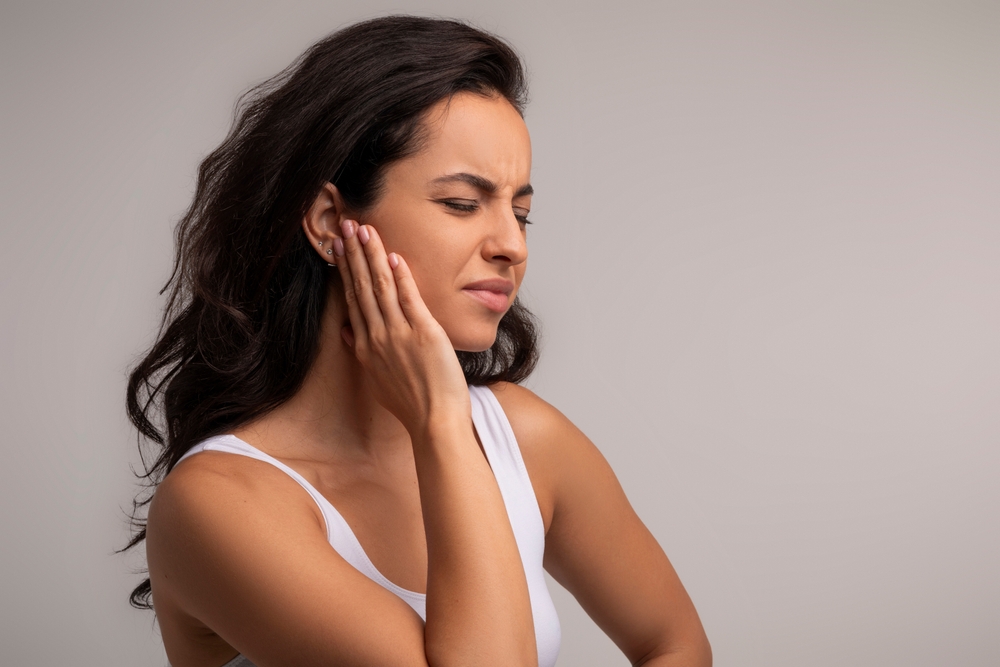You’re going about your day when suddenly, a persistent high-pitched sound emerges, cutting through the normal background noise. You look around, but nothing seems to be creating it. The sound isn’t coming from your surroundings but from inside your ear. This experience is called tinnitus. What causes this mysterious noise, and why does it affect so many people?
Tinnitus is a common condition where people hear sounds, such as ringing or buzzing, that have no external source. While many individuals experience temporary bouts of tinnitus, for some, it can become a chronic issue that impacts their quality of life. To understand tinnitus better, we need to look at what’s happening inside the ear and identify the factors that can lead to this auditory issue.
How does tinnitus work?
Tinnitus occurs when the brain perceives sounds that aren’t actually present. This phantom noise results from a breakdown in communication between your ear and your brain. Tiny, delicate hair cells inside the inner ear, known as stereocilia, are crucial to our ability to hear. These cells vibrate when they come into contact with sound waves, converting those vibrations into electrical signals that are sent to the brain, where they’re interpreted as sound.
When the stereocilia become damaged, however, they send erroneous signals to the brain. Your brain interprets these signals as real sounds, leading to the sensation of ringing, buzzing, or whirring that is characteristic of tinnitus. For most people, tinnitus lasts only a few minutes or seconds before fading. But for others, this error in communication persists, resulting in chronic tinnitus that can last indefinitely.
4 common causes of tinnitus
There are several reasons why stereocilia in the inner ear might become damaged, leading to tinnitus. Some of the most common causes include:
1. Exposure to loud noise
Noise-induced hearing damage is one of the most prevalent causes of tinnitus. If you’ve ever left a concert or a loud event with ringing in your ears, you’ve experienced temporary tinnitus caused by noise exposure. Repeated exposure to loud environments, such as concerts, construction sites, or even using headphones at high volumes, can cause permanent damage to stereocilia. Once these cells are damaged, they can’t be repaired, leading to long-term hearing issues, including tinnitus.
Prevention Tip: Use earplugs or earmuffs in loud settings and limit your exposure to high-volume sounds to protect your hearing.
2. Traumatic brain injury (TBI)
Injury to the brain, especially if it impacts areas related to auditory processing, can lead to tinnitus. A traumatic brain injury (TBI) can disrupt the brain’s normal ability to process sounds, and many individuals with TBI report experiencing tinnitus as a result.
Prevention Tip: If you’ve suffered a head injury, it’s important to monitor any changes in hearing and seek medical attention if tinnitus develops.
3. Earwax buildup
Earwax might seem harmless, but an excessive buildup can lead to tinnitus. When earwax accumulates in the ear canal, it can cause inflammation, putting pressure on the stereocilia. This pressure can create the perfect environment for tinnitus to develop.
Prevention Tip: Avoid using cotton swabs to clean your ears, as this can push earwax further into the ear canal. Instead, seek professional help for earwax removal.
4. Ear infections
Inflammation caused by ear infections is another potential trigger for tinnitus. When the infection subsides and the inflammation decreases, tinnitus usually resolves as well.
Prevention Tip: Treat ear infections promptly to avoid complications that could damage your hearing.
Additional factors that may contribute to tinnitus
While the above causes are the most common, there are other factors that may contribute to the development of tinnitus. Some medications, for example, have tinnitus listed as a potential side effect. In some cases, however, no clear cause for tinnitus can be found, which can be frustrating but is not uncommon. Even without a clear cause, tinnitus can be managed with the help of a hearing specialist.
How to protect your ears and prevent tinnitus
Understanding the common causes of tinnitus is the first step in preventing this condition from becoming a permanent issue. Protecting your hearing is essential, especially in situations where loud noise exposure is inevitable. Wearing ear protection, such as earplugs or noise-canceling earmuffs, can significantly reduce your risk of noise-induced tinnitus.
In addition to protecting your ears, regular visits to a hearing specialist can help you manage your auditory health. A specialist can provide tailored advice on how to protect your hearing and monitor any signs of hearing loss or tinnitus. If you do develop chronic tinnitus, early intervention with a specialist can help you explore potential treatments or therapies to manage the condition.
The ongoing search for tinnitus solutions
While we understand the mechanics behind tinnitus, scientists are still researching more effective ways to treat and prevent this condition. As research continues, there is hope for better treatments that can reduce the impact of chronic tinnitus and improve the quality of life for those affected by it.
In the meantime, taking proactive steps to protect your ears and seeking help when symptoms arise are the best ways to manage tinnitus and safeguard your hearing for the future.
Find a hearing specialist near you if you are experiencing the signs of tinnitus or would like to schedule a routine hearing test.
